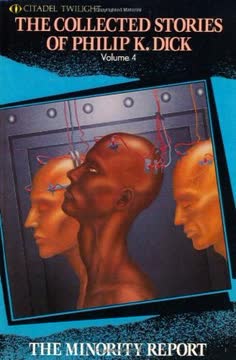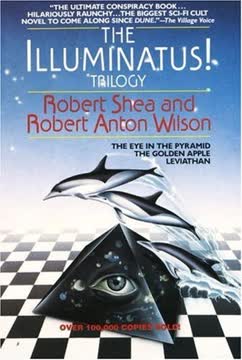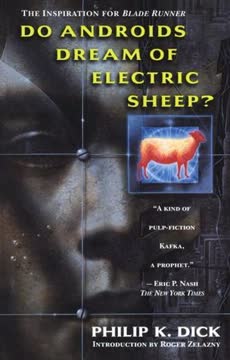Plot Summary
Anderton's Unsettling Encounter
John Anderton, the head of Precrime, is introduced to Ed Witwer, his ambitious new assistant. Anderton is immediately suspicious, fearing Witwer's intentions to replace him. This tension sets the stage for a gripping narrative about power, paranoia, and the ethical complexities of a system that punishes crimes before they occur.
Precrime's Ethical Dilemmas
Anderton explains the Precrime system to Witwer, highlighting its reliance on precogs—mutants who foresee future crimes. While the system boasts success, it raises moral questions about free will and punishing individuals for crimes not yet committed. Anderton's pride in the system is overshadowed by his growing distrust of Witwer.
Anderton's Predicted Crime
During a routine day, Anderton is shocked to learn from a precog report that he is predicted to murder a man named Leopold Kaplan. This revelation throws him into turmoil, as he grapples with the possibility of being framed and the implications for his career and freedom.
On the Run
Faced with the precog report, Anderton decides to flee, suspecting a conspiracy against him. He questions the loyalty of those around him, including his wife, Lisa. Determined to clear his name, Anderton embarks on a perilous journey to uncover the truth behind the prediction.
An Unlikely Alliance
Captured by Kaplan's men, Anderton learns that Kaplan is aware of the precog report. Despite mutual distrust, they form a tenuous alliance, each seeking to use the other to achieve their own goals. This partnership adds complexity to Anderton's quest for truth.
The Minority Report
Anderton discovers a "minority report", a conflicting vision suggesting he does not commit murder. This revelation offers hope and challenges the infallibility of the precogs' visions. Armed with this knowledge, Anderton sets out to prove his innocence and expose the flaws in the Precrime system.
Sarapis's Posthumous Influence
The powerful Louis Sarapis dies, leaving a legacy that continues to impact the world. His will dictates his revival in half-life, a state allowing temporary consciousness. This posthumous influence raises ethical questions and sets the stage for a complex interplay of power and legacy.
Cosmic Mysteries and Power Struggles
A human voice from beyond the solar system, seemingly Sarapis's, is intercepted, challenging the boundaries of life and death. Meanwhile, a power vacuum emerges, prompting factions to vie for control of Sarapis's empire. This struggle highlights the precarious nature of power and the lengths individuals will go to secure it.
Ragland Park's Reality-Altering Ballads
Ragland Park, a folksinger, possesses the power to alter reality through his songs. His ballads influence political events, leading to unforeseen consequences. This mysterious talent raises questions about the nature of reality and the power of art to shape the world.
A New Political Era
Max Fischer, thrust into power after Unicephalon 40-D is disabled, faces opposition from Sebastian Hada and Ragland Park. As Park's ballads continue to shape events, Fischer's regime crumbles. Jim-Jam Briskin emerges as a symbol of hope, heralding a new era of change and renewal.
Characters
John Anderton
Anderton is the founder of Precrime, proud yet paranoid about being replaced. His world is upended when he is predicted to commit murder, leading him to question the system he created and embark on a quest to clear his name.
Ed Witwer
Witwer is Anderton's new assistant, eager to learn and take over Precrime. His intentions remain ambiguous, fueling Anderton's suspicions and adding tension to their relationship.
Lisa Anderton
Lisa is Anderton's wife and a Precrime executive. Her loyalty is questioned by Anderton, adding complexity to his predicament as he navigates a web of suspicion and conspiracy.
Leopold Kaplan
Kaplan is the man Anderton is predicted to murder. He becomes involved in the drama, forming a precarious alliance with Anderton to protect himself and uncover the truth.
The Precogs
The precogs foresee future crimes, forming the backbone of Precrime. The existence of a minority report suggests their predictions are not infallible, introducing uncertainty into the system.
Louis Sarapis
Sarapis was a powerful industrialist whose influence persists posthumously. His will dictates his half-life revival, reflecting his desire to maintain control over his empire and leaving a complex legacy.
Johnny Barefoot
Johnny is Sarapis's public relations manager, tasked with reviving him in half-life. Despite personal disdain, he is bound by duty, highlighting the moral complexities of his role.
Ragland Park
Park's ballads possess the power to alter reality, influencing political events and challenging Fischer's regime. His talent raises questions about the nature of reality and the power of art.
Max Fischer
Fischer becomes President when Unicephalon 40-D is disabled. Lacking political savvy, he struggles to maintain control, ultimately leading to his downfall as he faces opposition from Hada and Park.
Jim-Jam Briskin
Briskin is a popular TV personality jailed for sedition. His release becomes a rallying point against Fischer's regime, positioning him as a symbol of resistance and potential leader.
Plot Devices
Precrime System
The Precrime system uses precogs to prevent crimes before they happen, raising ethical questions about free will and punishing individuals for uncommitted crimes. Its reliability is challenged when Anderton becomes a target.
Minority Report
The minority report reveals an alternate future where Anderton does not commit murder, suggesting the precogs' visions are not infallible. This revelation is key to proving Anderton's innocence and challenging Precrime.
Half-Life Technology
Half-life technology allows the deceased to be temporarily revived, raising ethical and technical challenges. Sarapis's posthumous influence highlights the complexities of managing the dead in a world where they can still exert power.
Cosmic Signal
The mysterious signal suggests a connection between the living and the dead, challenging characters' understanding of consciousness and existence.
Ragland Park's Ballads
Park's ballads influence political events, serving as a catalyst for change and conflict. This plot device raises questions about the nature of reality and the influence of art on the world.
Political Power Struggle
The power struggle between Fischer and Hada drives the narrative, highlighting themes of authority, resistance, and the potential for change in the face of adversity.
Analysis
"The Collected Stories of Philip K. Dick 4: The Minority Report" delves into themes of free will, power, and the ethical implications of predictive justice. Through the Precrime system, Dick questions the morality of punishing individuals for crimes not yet committed, challenging the notion of infallible justice. The narrative explores the complexities of power dynamics, as characters navigate conspiracies, alliances, and the influence of technology on society. The introduction of half-life technology and cosmic signals blurs the boundaries between life and death, prompting readers to consider the nature of consciousness and existence. Ragland Park's reality-altering ballads further complicate the narrative, highlighting the power of art to shape reality and influence political events. Ultimately, the stories underscore the precarious nature of power and the potential for change, offering a cautionary tale about the dangers of unchecked authority and the importance of questioning established systems.
Last updated:
FAQ
0. Synopsis & Basic Details
What is The Collected Stories of Philip K. Dick 4: The Minority Report about?
- Averting future crimes: The story centers on John Anderton, the founder of the Precrime system, which uses three precognitive mutants to identify and apprehend individuals before they commit violent acts, effectively eliminating major crime.
- Personal prophecy and paradox: Anderton's world is shattered when the precogs predict he will commit a murder, forcing him to question the very system he created and grapple with the paradox of a predetermined future that can be altered by its own revelation.
- Escape and systemic challenge: On the run, Anderton seeks to uncover a conspiracy he believes is framing him, leading him to confront the ethical and philosophical implications of Precrime, ultimately revealing the complex interplay between free will, fate, and the manipulation of information.
Why should I read The Collected Stories of Philip K. Dick 4: The Minority Report?
- Mind-bending philosophical questions: Philip K. Dick masterfully explores the profound implications of precognition on free will, justice, and individual liberty, making readers question whether a crime truly exists if it's prevented.
- Intricate psychological thriller: Beyond the sci-fi premise, the story is a gripping tale of paranoia and self-preservation, as Anderton navigates a world where his own future is his greatest enemy, keeping readers on edge with its twists and turns.
- Timeless social commentary: Dick's work offers a prescient critique of surveillance states, the fallibility of absolute power, and the dehumanizing potential of technology, resonating deeply with contemporary concerns about data, privacy, and algorithmic justice.
What is the background of The Collected Stories of Philip K. Dick 4: The Minority Report?
- Post-WWIII societal reconstruction: The story is set in a future society recovering from a devastating global conflict, where the Precrime system was established to prevent further violence, reflecting a deep societal trauma and a desperate need for order.
- Technological determinism's rise: The narrative emerges from a period where advanced cybernetics and parapsychology (ESP) have converged, leading to the creation of the precogs and a justice system that prioritizes predictive control over traditional punitive measures.
- Author's personal anxieties: Philip K. Dick's own notes reveal his fascination with "the growing domination of machines over man" and his fear of seemingly harmless technology taking control, which deeply informs the story's themes of systemic power and individual helplessness.
What are the most memorable quotes in The Collected Stories of Philip K. Dick 4: The Minority Report?
- "We're taking in individuals who have broken no law.": This line, spoken by Anderton to Witwer, encapsulates the central ethical dilemma of the Precrime system, highlighting the inherent contradiction of punishing someone for an uncommitted act.
- "The preview of the murder had cancelled out the murder; prophylaxis had occurred simply in his being informed.": This quote from the minority report's analysis reveals the core paradox of precognition, where the act of knowing the future inherently changes it, making the prediction itself a catalyst for alteration.
- "If the system can survive only by imprisoning innocent people, then it deserves to be destroyed.": Anderton's defiant declaration to Lisa marks a pivotal shift in his character, prioritizing human dignity and justice over the preservation of a flawed, albeit effective, system.
What writing style, narrative choices, and literary techniques does Philip K. Dick use?
- Disorienting narrative perspective: Dick frequently shifts the reader's understanding of reality, mirroring Anderton's paranoia by introducing conflicting information and making it difficult to discern truth from manipulation, a hallmark of Dick's style.
- Philosophical dialogue and internal monologue: The story is rich with characters debating complex ethical questions and Anderton's extensive internal monologues, which delve into his psychological state and the philosophical quandaries of his situation, driving thematic exploration.
- Integration of mundane and extraordinary: Dick grounds his futuristic concepts in everyday details—Anderton's baldness, office politics, the precogs' "vegetable-like" existence—creating a gritty realism that makes the fantastical elements more unsettling and believable.
1. Hidden Details & Subtle Connections
What are some minor details that add significant meaning?
- Precogs' physical deformities: The description of the precogs as "deformed and retarded," with "enlarged heads and wasted bodies," underscores the dehumanizing cost of their extraordinary ability, hinting at the moral price paid for Precrime's success.
- Army GHQ's duplicate cards: The revelation that Army GHQ receives duplicate precog reports establishes a crucial check-and-balance system, but also reveals a pre-existing power struggle between civilian (Precrime) and military authorities, setting the stage for Kaplan's manipulation.
- Lisa's "thin, brittle voice": When Lisa explains that Witwer's name isn't on the card, her voice is described as "thin, brittle," a subtle emotional cue that foreshadows her deeper involvement and pragmatic, almost cold, calculation in the unfolding events.
What are some subtle foreshadowing and callbacks?
- Anderton's initial paranoia: From his first encounter with Witwer, Anderton's immediate suspicion ("Fear touched him and he began to sweat") foreshadows the personal nature of the threat he faces, suggesting his downfall is not random but targeted.
- Witwer's "guileless" ambition: Witwer's repeated "guileless" expression, despite his clear ambition, subtly hints at his role as a pawn rather than the mastermind, preparing the reader for the revelation that he is not the primary antagonist.
- The "monkeys" analogy: Anderton's cynical reference to the precogs as "monkeys" who "see no evil, speak no evil" is a dark callback to the ancient proverb, ironically highlighting their passive role in a system that strips individuals of agency, including themselves.
What are some unexpected character connections?
- Lisa's calculated betrayal: The most unexpected connection is Lisa's deep involvement with the plot, not as Witwer's co-conspirator for personal gain, but as a pragmatic defender of the Precrime system itself, willing to sacrifice her husband to preserve its perceived infallibility.
- Fleming's true allegiance: Fleming, initially appearing as a rescuer from a "protective society," is revealed to be an Army Major working under Kaplan's orders, demonstrating that even apparent allies can be part of a larger, opposing faction.
- Kaplan and Witwer's collaboration: The discovery that Kaplan and Witwer are working together, with Kaplan picking up duplicate data from Precrime, reveals a sophisticated military strategy to discredit and dismantle the civilian Precrime agency, making the "frame-up" a calculated political maneuver.
Who are the most significant supporting characters?
- Lisa Anderton, the system's pragmatist: More than just a wife, Lisa is a Precrime executive whose ultimate loyalty lies with the system's survival, even if it means orchestrating her husband's downfall, making her a complex and morally ambiguous figure.
- Leopold Kaplan, the military strategist: As a retired General, Kaplan represents the old guard of military power seeking to reclaim authority from the civilian Precrime agency, using Anderton's predicted crime as a strategic weapon to achieve his objectives.
- "Jerry," the misphased precog: This specific precog, whose "misphased" vision creates the crucial minority report, is vital not for his personality, but for his unique temporal displacement that exposes the inherent flaw in the Precrime system's absolute authority.
2. Psychological, Emotional, & Relational Analysis
What are some unspoken motivations of the characters?
- Anderton's need for validation: Beneath his pride in founding Precrime, Anderton harbors an unspoken need for the system to be infallible, as its failure would invalidate his life's work and his very identity, driving his desperate quest for truth.
- Lisa's loyalty to order: Lisa's actions, including her willingness to see Anderton exiled, are driven by a deep-seated, almost cold, conviction that the Precrime system, despite its flaws, is essential for maintaining societal order and preventing a return to chaos.
- Kaplan's desire for military resurgence: Kaplan's motivation extends beyond personal safety; he seeks to restore the Army's pre-war dominance and dismantle civilian oversight, viewing Precrime as an impediment to military authority and a symbol of demilitarization.
What psychological complexities do the characters exhibit?
- Anderton's self-fulfilling prophecy anxiety: Anderton experiences intense psychological torment, caught between his belief in his own innocence and the system's infallible prediction, leading to a profound identity crisis where he questions his very capacity for violence.
- Lisa's pragmatic detachment: Lisa displays a chilling ability to compartmentalize her personal feelings for her husband from her professional duty to the system, showcasing a pragmatic, almost utilitarian, mindset that prioritizes the greater good over individual relationships.
- Witwer's naive ambition: Witwer's initial "breezy confidence" and "guileless" demeanor mask a naive ambition that makes him easily manipulated by more seasoned players like Kaplan, highlighting the psychological vulnerability of those eager for power without full understanding.
What are the major emotional turning points?
- Anderton's card revelation: The moment Anderton sees his own name on a precog report is a catastrophic emotional turning point, transforming him from a confident authority figure into a terrified, hunted man, shattering his sense of security and identity.
- Lisa's pistol threat: Lisa pulling a tiny pistol on Anderton in the ship is a shocking emotional climax, revealing the depth of her commitment to Precrime and forcing Anderton to confront the ultimate betrayal from his closest confidante.
- Anderton's decision to kill Kaplan: The grim realization that he must fulfill the prophecy to save the system, despite knowing his innocence, marks a profound emotional and moral compromise, transforming him into the very "murderer" he was predicted to be, albeit for a different motive.
How do relationship dynamics evolve?
- Anderton and Lisa's fractured trust: Their relationship devolves from a seemingly supportive partnership to one of profound distrust and betrayal, as Lisa's loyalty to the system supersedes her marital bond, exposing the fragility of personal connections under extreme pressure.
- Anderton and Witwer's power struggle: What begins as a tense professional handover evolves into a complex game of cat-and-mouse, with Witwer initially a perceived threat, then a pawn, and finally a successor who inherits Anderton's burden of maintaining the system.
- Anderton's forced alliances: Anderton is compelled to form uneasy alliances with figures like Kaplan and Fleming, highlighting how desperate circumstances can forge temporary bonds between adversaries, only for these alliances to dissolve as true motivations are revealed.
4. Interpretation & Debate
Which parts of the story remain ambiguous or open-ended?
- The true "innocence" of the detained: The story leaves open the question of whether any of the thousands of individuals in the detention camps would have committed their predicted crimes if left free, or if their arrest itself created a new, non-criminal timeline.
- The ultimate fate of the precogs: While Anderton and Lisa are exiled, the story doesn't detail the long-term future of the precogs themselves, leaving their continued existence and the ethical implications of their "vegetable-like" servitude unresolved.
- The future of the Precrime system: Although Anderton's sacrifice preserves Precrime, the ending implies a fragile stability, with Witwer now facing the same inherent paradoxes and potential for manipulation, suggesting the system's long-term viability remains uncertain.
What are some debatable, controversial scenes or moments in The Collected Stories of Philip K. Dick 4: The Minority Report?
- The precogs' dehumanization: The depiction of the precogs as "deformed and retarded" "idiots" or "monkeys" raises a controversial ethical question about the exploitation of sentient beings, even if their abilities serve a greater good, sparking debate on the cost of societal safety.
- Anderton's forced culpability: The central premise, where Anderton is predicted to commit murder and then chooses to fulfill it to save the system, is highly debatable. It forces readers to confront whether his final act is a true crime or a necessary sacrifice, blurring the lines of moral responsibility.
- Lisa's calculated betrayal: Lisa's decision to prioritize the Precrime system over her husband's freedom, even to the point of threatening him with a weapon, is a controversial moment that challenges traditional notions of marital loyalty and the lengths one might go to preserve a perceived societal good.
The Collected Stories of Philip K. Dick 4: The Minority Report Ending Explained: How It Ends & What It Means
- Anderton's self-sacrificial act: Anderton ultimately kills Kaplan, fulfilling the majority report's prediction, but does so consciously and deliberately to expose the Army's plot and preserve the Precrime system's credibility, accepting exile as his punishment. This is a key aspect of "The Minority Report ending explained."
- Preservation of the flawed system: By committing the murder, Anderton ensures that the public believes in the Precrime system's infallibility, preventing its dismantling by the Army. His act, though criminal, serves to maintain the societal order that Precrime represents, albeit at a profound personal cost. This highlights the "themes in The Minority Report" regarding societal stability.
- The enduring paradox of free will: The ending reinforces the story's central theme: the paradox of precognition. Anderton's knowledge of his predicted future allows him to manipulate events, turning a predetermined outcome into a chosen one, demonstrating that free will can exist even within a deterministic framework, a crucial element of "The Minority Report analysis."
Review Summary
The Collected Stories of Philip K. Dick 4 is a well-regarded anthology showcasing the author's mastery of paranoia-infused science fiction. Readers praise Dick's ability to craft thought-provoking, idea-dense narratives exploring themes of capitalism, technology, and reality. Notable stories include "The Minority Report," "Autofac," and "The Days of Perky Pat." While some reviewers note uneven endings and occasional clunky dialogue, most appreciate Dick's innovative concepts and his talent for capturing the essence of characters quickly. The collection offers a mix of classic tales and lesser-known gems, providing insight into Dick's evolving style.
Similar Books
Download PDF
Download EPUB
.epub digital book format is ideal for reading ebooks on phones, tablets, and e-readers.












